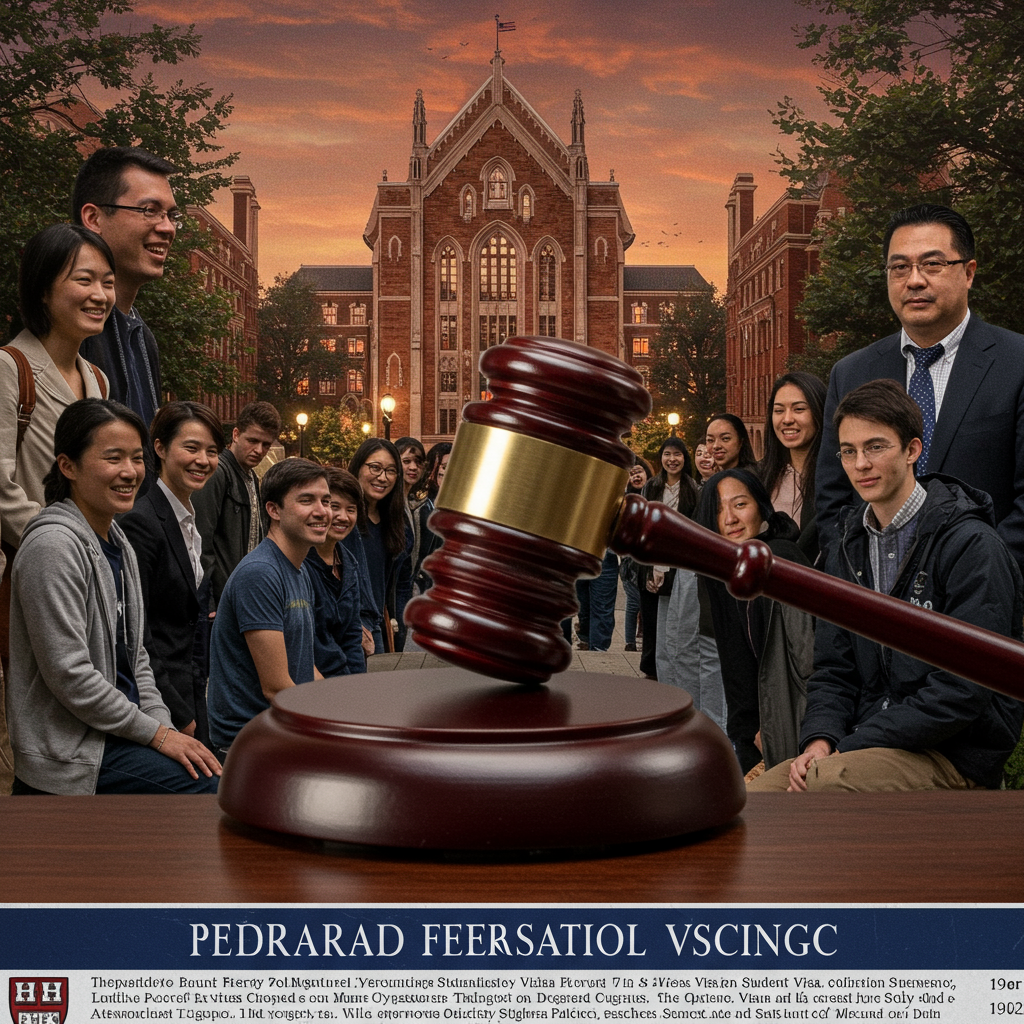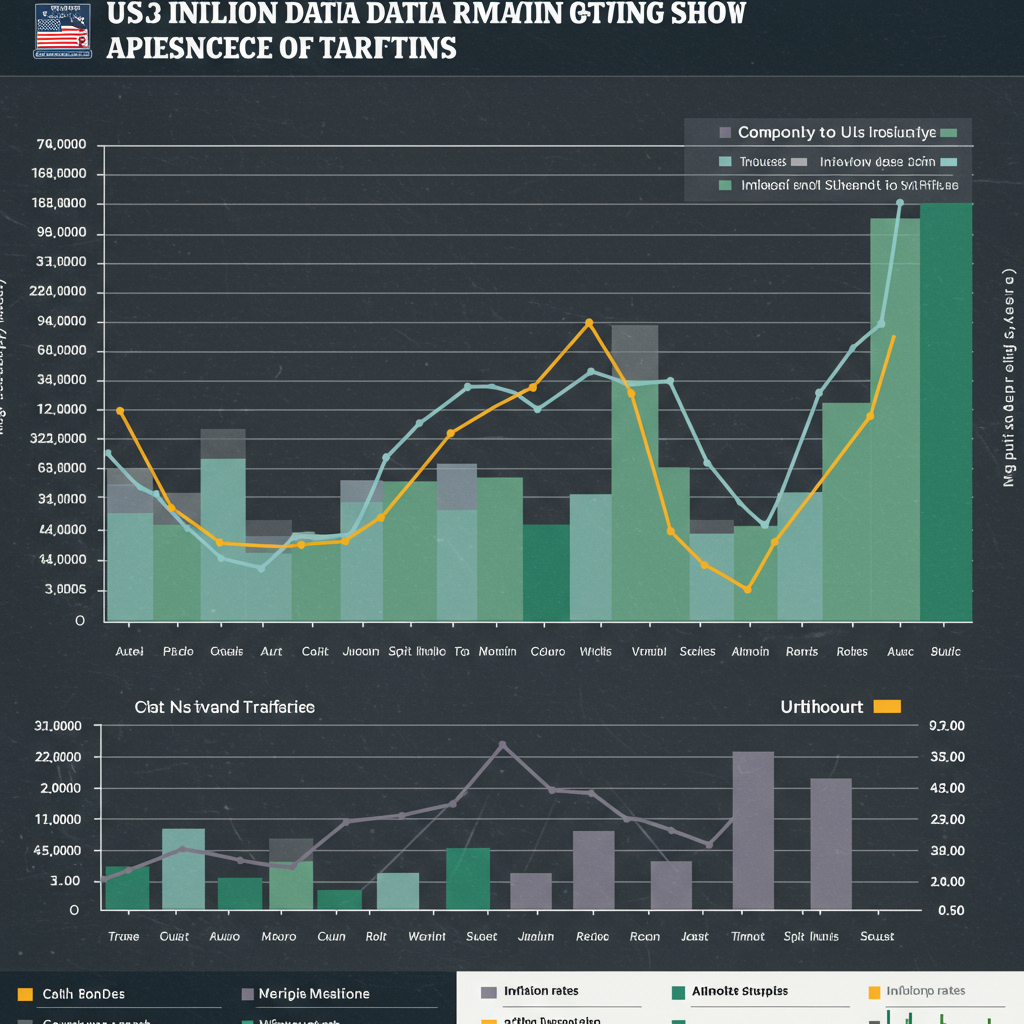Judge Temporarily Blocks Trump Plan Targeting Harvard’s International Students
A federal judge has issued a temporary restraining order, providing a reprieve for thousands of international students at Harvard University by blocking the Trump administration’s plan to strip the institution of its ability to enroll foreign students. The move marks a temporary halt in an escalating legal and political conflict between the White House and one of America’s most prestigious universities.
The administration, specifically the Department of Homeland Security under Secretary Kristi Noem, had announced the decision to revoke Harvard’s certification for the Student and Exchange Visitor Program (SEVP) on Thursday. Access to this database is essential for universities to manage foreign students and is a requirement for their F- or J- non-immigrant visas. The ban, which was set to effectively end Harvard’s ability to enroll new international students and threaten the status of existing ones, was justified by the administration citing Harvard’s alleged “failure to adhere to the law,” non-compliance with a sweeping records request, and accusations of not doing enough to combat antisemitism or change hiring and admissions practices. Secretary Noem stated the action should serve as a “warning to all universities.”
Harvard swiftly filed a lawsuit challenging the action, calling it “unlawful and unwarranted,” a “blatant violation” of the law and free speech rights, and “unconstitutional retaliation” for defying White House demands. The university argued the decision would have an “immediate and devastating effect,” stating it sought to “erase a quarter of Harvard’s student body” and jeopardized the futures of thousands.
Temporary Reprieve Brings Relief Amidst Uncertainty
US District Judge Allison Burroughs issued the temporary restraining order on Friday, pausing the administration’s SEVP revocation. The next hearing in the case is scheduled for May 29 in Boston.
While the ruling brought palpable relief on campus, particularly among the over 6,800 international students who make up more than 27% of Harvard’s enrollment, the uncertainty persists. Students from over 140 countries, including significant numbers from China, Canada, India, South Korea, and the UK, expressed fear and anxiety following Thursday’s announcement.
Stories emerged of students scrambling to understand their status, fearing potential deportation, and worrying about their ability to finish degrees, pursue job opportunities tied to their visas, or even return to the US if they left for the summer. Many felt like “pawns in a game,” describing the situation as “incredibly dehumanising.” One graduating student opted for a job in Brussels partly due to the instability, while a junior chose to stay on campus over summer break rather than risk being unable to re-enter the country for his job. The stress took a toll, with one student saying it felt “surreal to think that even for some period of time you’re unlawfully staying in a country, just because you’ve been to university there.”
Financial and Political Stakes
Beyond the immediate impact on students, barring international enrollment would have a significant financial consequence for Harvard. International students are often more likely to pay full tuition, which exceeds $59,000 annually (with total costs often surpassing $100,000 before aid), effectively subsidizing financial aid for American students.
This latest action is part of a broader pattern of pressure from the Trump administration on elite universities. The administration has launched investigations into dozens of institutions, demanding changes, particularly concerning campus activism related to pro-Palestinian movements and alleged discrimination against conservative viewpoints. Earlier actions against Harvard included freezing billions in federal funding and threatening the university’s tax-exempt status, also leading to prior lawsuits from Harvard.
Harvard has mounted a robust legal defense, enlisting high-profile lawyers. While the university has made some concessions, such as dismissing leaders of its Center for Middle Eastern Studies, it views the core government demands as an attempt to control its academic independence.
Legal experts note that federal courts in Massachusetts have consistently ruled against the Trump administration in such disputes. However, the ultimate outcome remains unpredictable, especially if the case reaches the US Supreme Court. Harvard leadership has indicated they have the resources and determination to fight the administration’s actions.
For now, the judge’s order provides a crucial pause, allowing international students to breathe a temporary sigh of relief. However, the underlying dispute remains unresolved, leaving the long-term future of international enrollment at Harvard – and potentially other universities targeted by the administration – uncertain as the legal battle continues.
References
- https://www.bbc.com/news/articles/c05768jmm11o
- https://www.yahoo.com/news/harvard-sues-trump-administration-blocking-134526541.html
- https://www.bbc.com/news/articles/cm2k0pl3ex7o
- https://www.aol.com/harvard-sues-trump-administration-blocking-134526016.html
- https://sg.news.yahoo.com/harvard-says-sues-us-over-045557462.html




